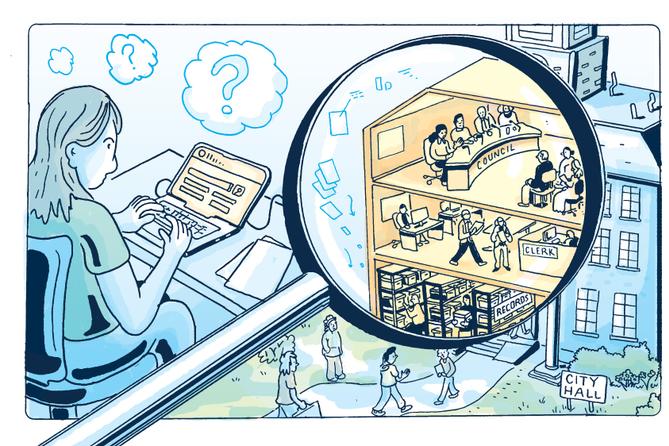STATE COLLEGE — As newspapers print less frequently in some communities and close in others, local government groups want the legislature to change a state law that requires municipalities to publish public notices in a community’s paper of record.
Two bills introduced in the state House and Senate would allow digital public notices. Both are strongly opposed by the organization that lobbies for Pennsylvania’s newspapers.
Public notices are legal advertisements that detail the workings of government agencies. They share information about annual budgets, bids for supplies and services, ordinances, and meeting and hearing logistics. Mandatory legal notices ensure basic government transparency and allow residents to participate in the decision-making process.
But the decline of newspapers has complicated local governments’ administrative responsibilities, said Ron Grutza, senior director of regulatory affairs at the Pennsylvania State Association of Boroughs.
Grutza wants state lawmakers to update the 1976 law to allow counties, municipalities, municipal authorities, and school districts more options for where they can place advertisements, such as on their own websites or a newspaper’s.
Title 45, which governs advertising requirements, is “a 20th century law,” Grutza told Spotlight PA. His organization is among a list of statewide associations representing municipal governing bodies that support the change.
Local governing bodies across the commonwealth could also potentially save tens of millions of dollars using websites rather than newspapers, Dave Sanko, executive director of the Pennsylvania State Association of Township Supervisors, told Spotlight PA.
A 2006 Penn State study pegged annual savings at $23 million a year — a number that could be higher now, a PSATS spokesperson said.
Proponents argue that the internet reaches more people than traditional media nowadays, and local governments that don’t have websites would be incentivized to create them, which could improve transparency for the public.
A survey of 600 Pennsylvania voters commissioned by the Pennsylvania NewsMedia Association in 2022 found more than 90% of them answered yes when asked whether they favored state law requiring public notices being published in print editions of local newspapers.
The association, of which Spotlight PA is a member, lobbies for newspapers in the commonwealth. Legislative Affairs Director Barbara Hough Huesken said newspapers are independent third parties that serve as a one-stop shop for the public to find the information they need.
Newspapers should remain the primary destination for public notices, considering the lack of reliable broadband access in parts of Pennsylvania, Huesken said.
The two bills could be joined by a third. State Sen. Ryan Aument (R., Lancaster) said in a December memo that he plans to introduce legislation directing a committee to study the cost of public notices. An up-to-date look into the ways the public are informed and the impact legal advertisements have on newspaper revenue is necessary to address the issue, a spokesperson for Aument told Spotlight PA. The bill could be introduced in the fall.
Whether those proposals have a chance to reach the governor’s desk remains unclear. The current bills have not been considered by the committees they were referred to, indicating there may not be an appetite to make such a change.
SUPPORT THIS JOURNALISM and help us reinvigorate local news in north-central Pennsylvania at spotlightpa.org/donate/statecollege. Spotlight PA is funded by foundations and readers like you who are committed to accountability and public-service journalism that gets results.

